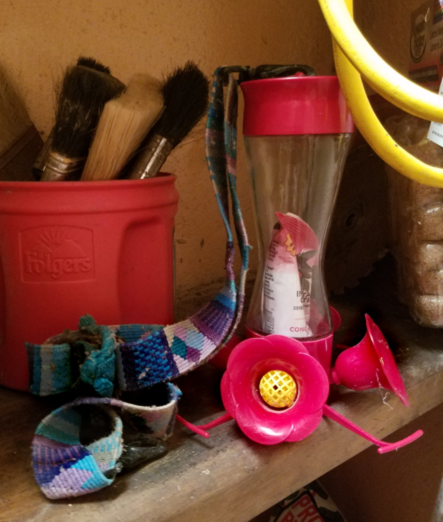
There isn’t a hummingbird feeder hanging at my house. You’d think, as an author and illustrator of nature books, articles and nature center exhibits (retired, of course, but my webpage is here) that a hummingbird feeder, especially in this hummingbird heaven, would be high on my list of things to have. And I wish it could be.
I had hummingbird feeders years ago when I lived in Oregon and I enjoyed visits from throngs of Rufous, Anna’s, Calliope, and Black-chinned hummingbirds. They were a reliable source of entertainment and pleasure.
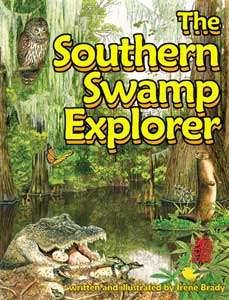
But while researching my book Southern Swamp Explorer one day, I found myself looking up information on hummingbirds, and what I found changed my thinking forever. Of course, I had always been aware of the need to change the feeders regularly, hang them in shade, and discourage insects, etc., so that wasn’t the problem. The problem was the inevitable disruption of the ecosystem.
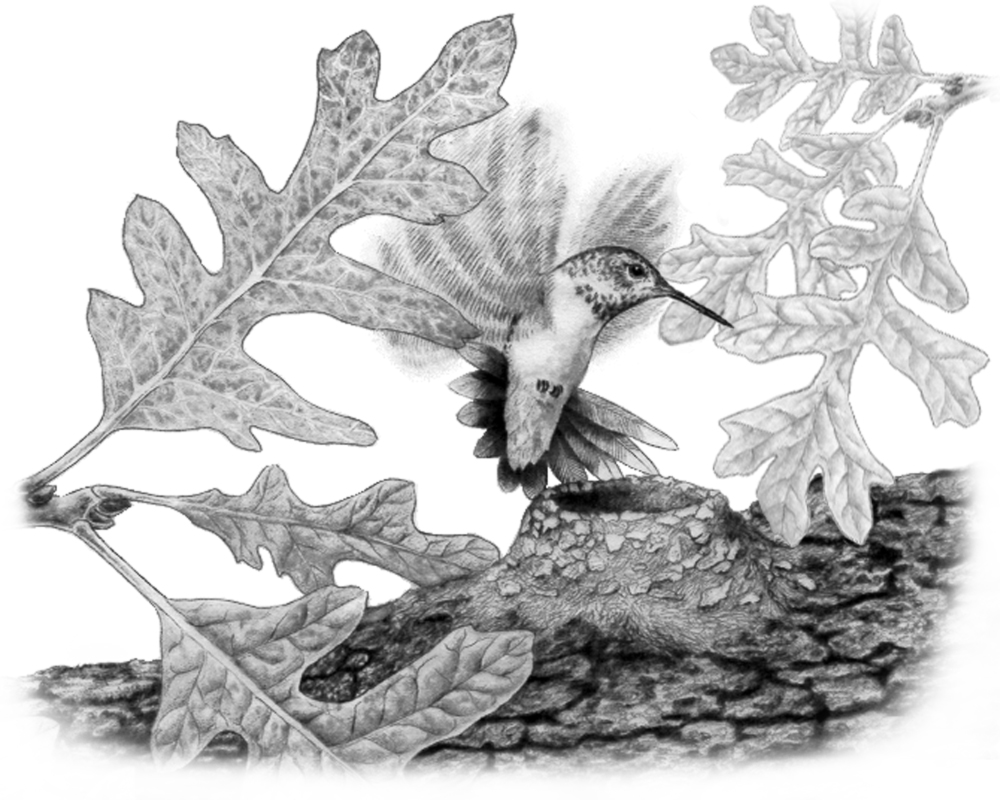
It came to my attention that by substituting nutrient-free sugar nectar (on a par with our eating cinnamon rolls for breakfast – yummy but not all that good for us) for the various nectars the hummers would sip from a multitude of varying flowers, I was almost surely depriving them of vitamin and mineral nutrients from natural nectar, to say nothing of aphids, leaf hoppers, ants and other natural foods they would encounter and eat in the trees and meadows as they foraged. That was the first crack in the foundation of my assumption that I was helping the hummers by feeding them.
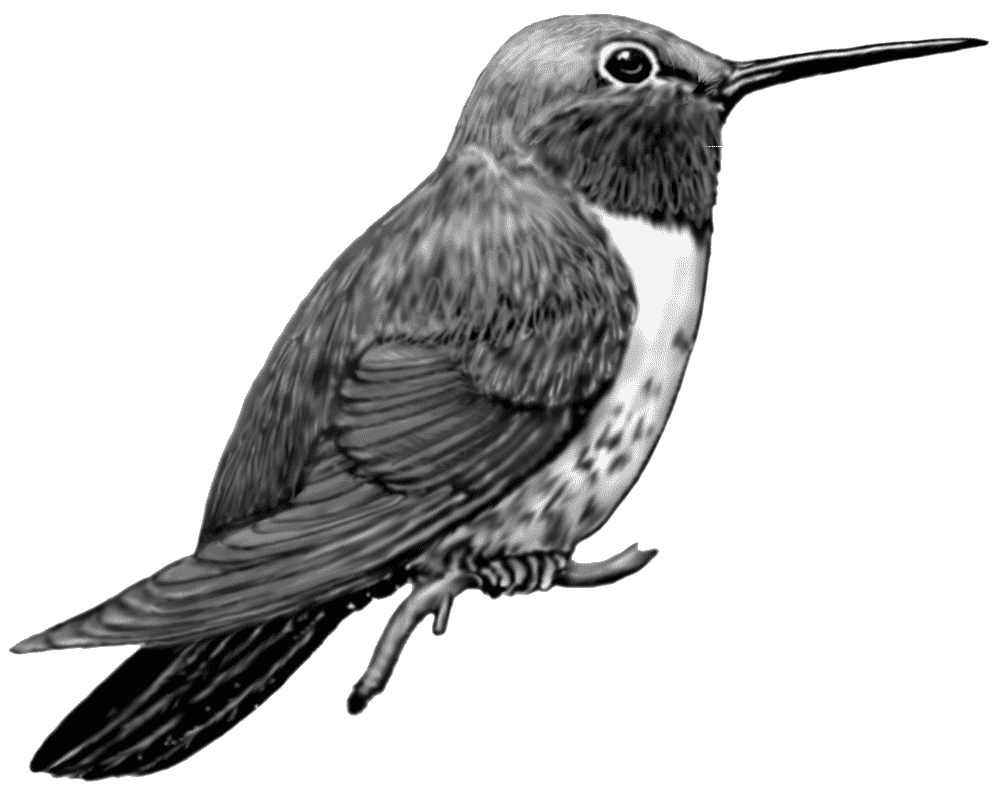
The next crack appeared during a chat with a friend who owned a local wildlife rehab center. She told me of the hummingbird victims they received from the vicious territorial fights like those I had witnessed around my feeders. The wounded hummers often didn’t survive the needle-like wounds those long beaks cause. It had never occurred to me that such duels could be fatal. But they can be, and often are. And if one of “my” hummers died, it would be my fault for attracting a dozen hummers to a 6” diameter feeder source when normally they would be scattered all over the environment searching out individual flowers. There are always bullies at the feeders, there are always battles. How could I justify enabling that?
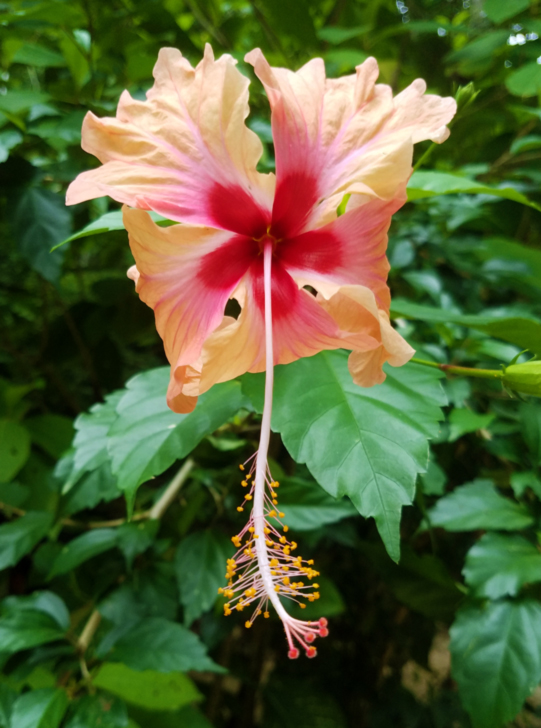
And what about all those flowers that weren’t being pollinated by their usual hummingbird clientele? Was I also altering or even damaging the entire ecosystem just for my own personal pleasure? There are a lot of flowers that can only be pollinated by certain birds or moths with long tongues or proboscises. How does removing their pollinators affect those plants/trees? I don’t even want to think about it.
Hoping for some good news, I searched the web for “pros and cons of feeding hummingbirds” and found this: https://www.birdphotos.com/photos/node/8351 (spoiler: the cons outnumber the pros 16 to 2). That did it for me.
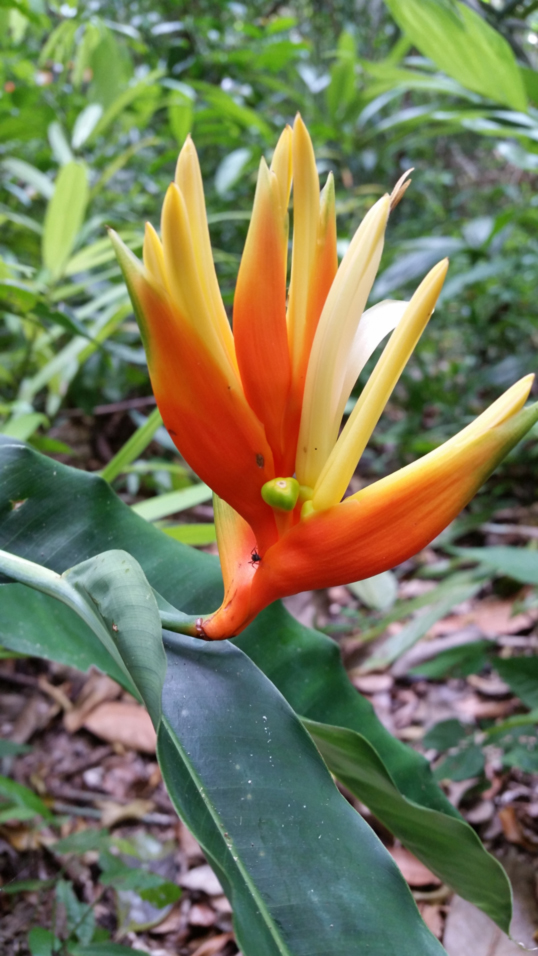
It’s hard to give up such engaging entertainment, so how about this for a suggestion: If we can’t bring ourselves to stop feeding hummers entirely, let’s limit ourselves to two, small, widely-spaced feeders, hanging in shade and frequently cleaned, put out once a day at varying times. This will attract passing hummers, discourage quarreling hordes, and help prevent bullying and territorial fights – but still give us our fix of beauty and joy for the day. Since we won’t be over-feeding them, the hummers will be out searching for their natural foods, eating healthy, and getting lots more exercise instead of perching on veranda railings between sips. Another perk is that baby hummers will receive better diets from their parent/s (that first month is crucial).
Another suggestion would be to plant native flowering plants around our houses and on our verandas to attract these little beauties. The flowers of such plants as heliconias, jasmines, gingers, hibiscus and other flowering bushes attract hummingbirds, and may even provide nest sites. Many plants flourish in pots, and our verandas could be gorgeous, lush hummingbird cafeterias.
Whatever we decide to do at our BIB eco-community home, let’s make a concerted effort to be aware of the possible impact on our natural environment.